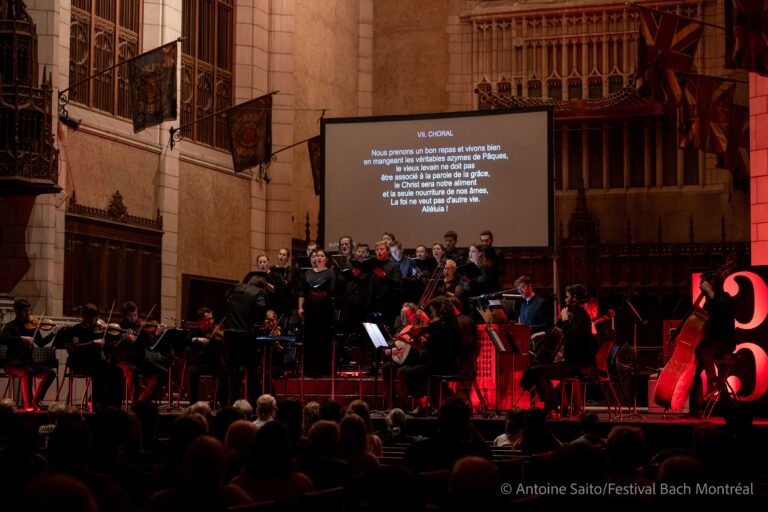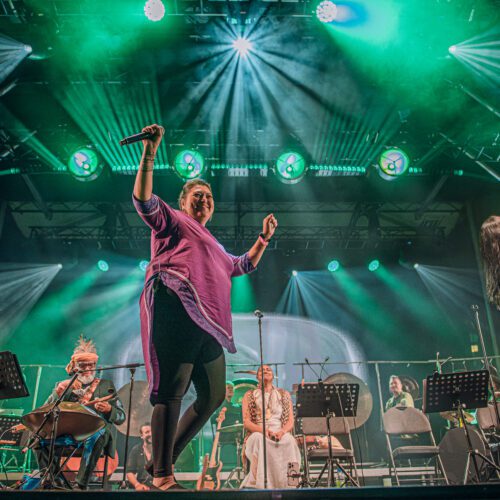The Orchestre de l’Agora at the Bach Festival usually promises an enchanting evening, but this time it surpassed itself. St. Andrew & St. Paul’s Anglican Church was lit up on Wednesday evening, thanks to a careful and active staging, but above all to a well-thought-out program that showcased the vocal music of Johann Sebastian Bach and members of his family who preceded him.
A small but effective orchestra accompanied a wonderfully well-balanced choir throughout the concert. The principal voices were in the hands of top-quality soloists: soprano Myriam Leblanc, counter-tenor Nicholas Burns, tenor Daniel Johannsen, and bass Matthias Helm. Nicolas Ellis acted as both conductor and choir director. He was seemingly involved in every facet of the concert.
The program took the form of a demonstration of the standards of choral composition before Johann Sebastian Bach’s (JS) arrival on the musical scene through the works of his uncles Johann Christoph (JC) and Johann Michael Bach (JM). Within the works of little-known composers, we can find elements that made JS Bach the master he was.
JC Bach’s works are very standard in their composition. They are typical chorales, with all the rules and prescriptions of the simplicity of the Lutheran doctrine. But within this rigour, we find an ease to navigate within the frameworks of the norm and an undeniable elegance, especially in the final work Es ist nun aus mit meinen Leben, which frames JS Bach’s last cantata on the program. JM Bach, for his part, is more adventurous than JC and his chorale but stays fairly close to the norm, rather like JS Bach, who knew when to respect the rules of writing and when to break them. This is also an accompanied chorale, a format JS Bach often used.
Apart from the delightful intermingling of works by JC and JS in the second half, the presence of the latter’s uncles on the program seems to serve a single function: to demonstrate the great master’s mastery of musical language and his virtuosity. Between the ultra-rigid, rather simple choral composition of his predecessors and the two-, three- and even four-part canons of the cantatas, it’s night and day. Even in his early works. The last cantata, Gottes Zeit ist die allerbeste Zeit, demonstrates a complexity of writing that would make the Reformers blush.
Many of the texts revolved around the theme of death (an oft-used word), and concluded with a magnificent finale, with the “Weilt, gute Nacht” from Es ist nun aus mit meinen Leben (JC Bach) seemingly fading away, as do the lights and the text’s protagonist. A moment of magical contemplation that touched the audience, invoking a long round of applause. Apart from the lack of the original lyrics (in German) on the screen behind the choir, it was a perfect evening. We’re already looking forward to next year!
For more information on the Orchestre de l’Agora’s program and upcoming concerts, please visit HERE.
























